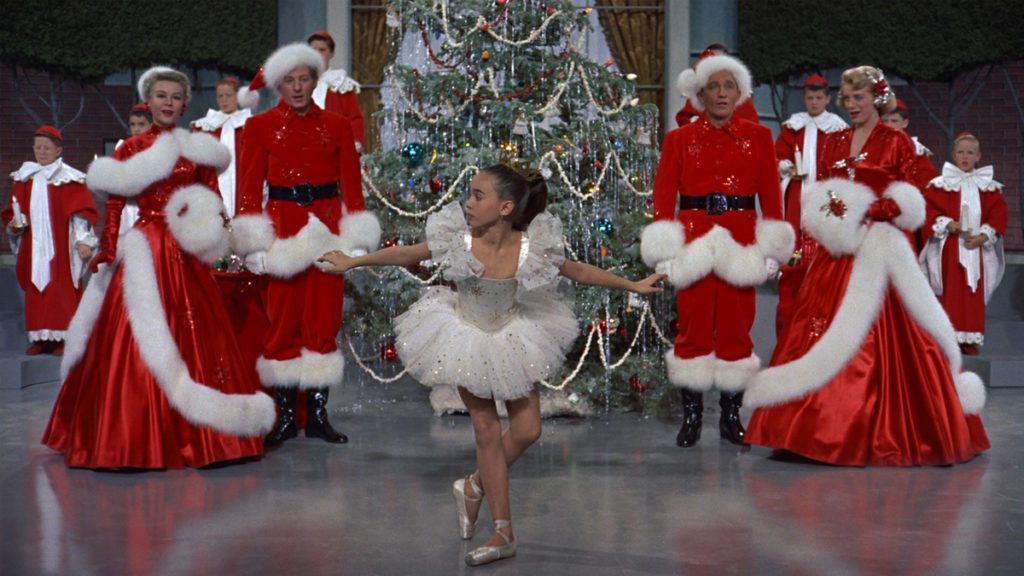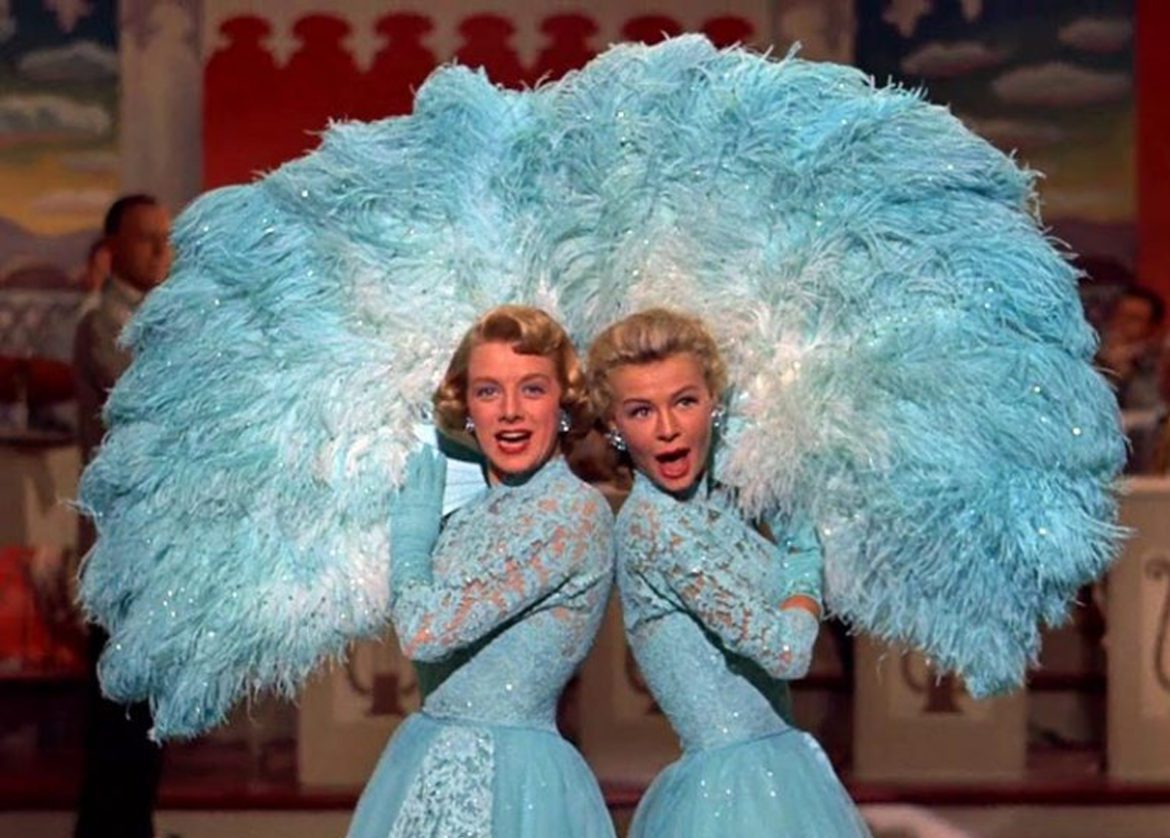It was an unusual pairing—one that even Hollywood couldn’t have made-up: a Russian Jew, who immigrates to New York with his family, teams up with the descendant of English Protestants, who immigrated to the New World on the Mayflower, and together create the greatest Christmas song—or any song, for that matter—of all: “White Christmas.”
The year is 1893—the place, New York…
A Yiddish cantor named Moses Beilin flees with his wife, Lena, and their eight young children as an armed band of the Czar’s Cossacks torch their home and murder their neighbors in the Jewish ghetto of Tyumen, a city in the far reaches of the Russian Empire, in Siberia. They embark upon a long and difficult journey by land, then by sea; finally, in the dark of a starless night, a shining light breaks through the gloom. It is the torch held high by the Statue of Liberty, the beacon of hope that lights the way to the New World. Though they live in Dickensian squalor in a Yiddish neighborhood in the Lower East Side of New York, where home is a cold-water, windowless basement flat, they are happy because they are together and alive and free. At the age of eight, the son named Israel Isidore leaves school to sell newspapers in the Bowery. It is the only formal education he will ever have. He does well, though. The money he makes puts food on the family table and because he sings as he sells, customers tip him an extra penny.
At eighteen, “Izzy” realizes his dream and lands a job as a singing waiter at Pelham’s Café, a busy, boisterous restaurant where music, laughter, and smoke fill the room and upstairs, “Chinatown Gertie” runs a whorehouse. After closing time, Israel sits down at the piano. He picks at the notes, teaching himself by ear how to play, and composes his own songs. He only plays the black notes, the key of F-sharp, because it’s easiest for him. He will only ever be able to play in F-sharp, or read or write down music, for that matter. (Years later, when good fortune shines upon him, he orders a custom-built piano he calls “Buick,” with a lever that shifts the keyboard and transposes his music to any key without changing his finger pattern. Buick goes wherever he goes, even to Berlin, as the rubble still smolders after VE Day.) A few months later, he writes a song called “Marie from Sunny Italy.” It gets published and becomes a big hit, but when the printer sets the type for the sheet music, he makes a mistake. Instead of “Music by I. Beilin,” it says, “Music by I. Berlin”—and in that moment, Irving Berlin is born.
Five years go by. The music flows—hot, explosive, nonstop, like lava seething down the side of an erupting volcano. Everyone’s whistling Berlin’s tunes. He composes by day and “jams” by night with his Jewish friends in cigarette-choked, neon-lit haunts in Manhattan’s Yiddish Theater District: Al Jolson, George and Ira Gershwin, Jerome Kern, Harpo Marx, Fanny Brice, George Burns, Eddie Cantor, Jack Benny; like him, they are Jewish immigrants, or children of Jewish immigrants; and like him, their names today are engraved in the annals of American entertainment.

In 1911, Berlin composes “Alexander’s Ragtime Band,” prompting a dance craze that sweeps across the nation. Irving Berlin’s career takes off like a shooting star. The following year he marries the sister of his songwriter friend, E. Ray Goetz (“For Me and My Gal”). Irving and Dorothy honeymoon in Cuba, where he composes, “I’m a Happy Married Man,” “I’m Going on a Long Vacation,” and “I Love You More Each Day.” Their marital bliss is short-lived; Dorothy contracts typhoid fever and dies six months later. Twenty-five and widowed, Berlin writes “When I Lost You” to assuage his grief. It strikes a chord deep in the heart of anyone who has one, and sells a million copies virtually overnight. It’s the first “romantic ballad” ever written and he’ll add others, such as “All By Myself,” to the 1,500 song repertoire he’ll produce in the course of his 101-year lifetime.
Now Berlin’s the “Lullaby Kid,” the talk of the town, rolling out one hit song after another. One night, Fanny Brice, star of the Ziegfeld Follies, sings “Good-bye, Becky Cohen” during a performance. “Sing it with a Yiddish accent,” Berlin implores her. She does—and brings down the house. It becomes her trademark. Florenz Ziegfeld, the great musical impresario, signs him up to score his Broadway extravaganzas. Berlin writes “A Pretty Girl is Like a Melody,” and “What’ll I Do?” which becomes the unofficial anthem of the “Flapper Age.”
Then, in 1925, he meets Ellin, the daughter of prominent New York multimillionaire businessman, Clarence Mackay, and falls madly in love. When Mackay learns of his daughter’s engagement to a short, skinny, hyperactive Jewish immigrant songwriter, he blurts out, “the marriage will only happen over my dead body.” So the couple quietly elopes—and Ellin’s father disowns her. Four years later, Wall Street crashes and on “Black Tuesday,” Mackay loses his entire fortune. Without any fanfare or strings, his son-in-law, who’s gathered up his own fortune, bails him out. After all, family is the most important thing in the world, Berlin reckons.
Berlin writes a wedding song for Ellin called “Always” and includes it with the songs he writes for the Marx Brothers’ Broadway show, The Cocoanuts. Groucho remarks, “No one will believe a lyric like, ‘I’ll be loving you, always.’ How about changing it to, ‘I’ll be loving you Thursday?’” But Irving and Ellin do and their love affair lasts sixty-three years, until her death in 1988, at the age of 85. (Always together, they won’t be apart for long. Her grieving husband follows, ten months later.)
Irving and Ellin have four children, three daughters and a son, Irving Berlin, Jr. But the boy is frail and lives just three weeks. He dies on Christmas Day. Christmas was simply an American holiday to Irving; now it’s a sorrowful memory. He and Ellin will spend a part of every Christmas Day, for the rest of their lives, at the graveside of their son. But that doesn’t stop Christmas from coming. Christmas is a big deal for the Catholic Ellin, a distraction from her motherly loss and, perhaps, an outlet to shower her three remaining children with gifts. Her lavish spending prompts Irving to tell his daughters, “I gave up trying to get your mother to economize. It was easier just to make more money.”
But another Christmas is yet to come—one that will change the meaning of December 25th, and Berlin’s life, in ways he could never imagine.
Berlin—like every other successful composer, writer, and actor in New York—is summoned to Hollywood for big bucks. It’s the Great Depression, a time when a nickel buys you a cup of coffee and a donut, and the big studios—MGM, RKO, Warner Brothers—are paying their talent one, two, three grand a week. Berlin was never ashamed to say he did it for the money and now he’s raking it in. It’s dark and desperate times and America needs to be happy, needs laughter as much as breath. The population’s 122 million and Americans flood the movie houses 95 million times a week. They howl over the Marx Brothers in The Cocoanuts, now a film, swoon over Astaire and Rogers in Top Hat and Follow the Fleet—and come away humming Berlin’s uplifting songs. “Blue Skies” gives people hope. “Puttin’ On the Ritz” makes them smile. “I’ve Got My Love to Keep Me Warm” makes everything seem all right.
But there’s another song that every American will soon be singing.
In 1938, the storm clouds of war are gathering over Europe and the threat posed by German Chancellor Adolf Hitler is increasingly, frighteningly clear. Popular singer Kate Smith asks Berlin for something patriotic and he takes out a song he had filed away in 1918. The title was inspired by his mother, who daily praised her adopted homeland with three words. “To me,” he explained, “‘God Bless America’ was not just a song, but an expression of my feeling toward the country to which I owe what I have and what I am.” Forty words set in song became a second national anthem, the battle cry of World War II (and the song that would raise America’s voices as one on September 11, 2001.) Every penny goes to the Boy Scouts and Girls Scouts of America (and those pennies have amassed to millions today.) He writes, “This is the Army, Mr. Jones” and “Oh, How I Hate to Get Up in the Morning” (and gives all the profits to the Army Relief Fund); “Any Bonds Today? (and assigns all the royalties to the Department of the Treasury); “Angels of Mercy” (and turns all proceeds to the American Red Cross.) When Berlin’s lawyers suggest tax shelters, he admonishes them. “I owe all my success to my adopted country. I want to pay taxes. I love this country,” and writes, “I Paid My Taxes Today.”

It’s 1940. Irving Berlin runs into his secretary’s office and shouts, “Grab your pen and take down this song. I just wrote the best song I’ve ever written—heck, I just wrote the best song that anybody’s ever written!”
Just eight lines long, Berlin calls it “White Christmas.”
Berlin writes the story and music for Holiday Inn, starring Bing Crosby and Fred Astaire. He includes “White Christmas” but bets “Be Careful, It’s My Heart” will prove the winner. Then, halfway through production, the Japanese bomb Pearl Harbor. Eighteen days later, on Christmas Day 1941, Crosby sings “White Christmas,” for the first time, on his weekly NBC radio show, The Kraft Music Hall. It tops the charts for eleven weeks—and wins the Academy Award for Best Original Song of 1942. It has never been out-of-print since it was released as an LP in 1949, and has sold over 50 million albums to date—more than any other record in history.
“I sang it many times in Europe in the field for soldiers,” Bing Crosby recalled, “and they’d holler for it. They’d demand it. When I’d sing it, they’d all cry. It’s nostalgic, and it’s kind of poignant, you know, particularly during the war years; you know, so many young people were away and they’d hear this song. And it would happen to be that time of the year, it would really affect them.”
Twelve years later, Crosby stars with Rosemary Clooney and Danny Kaye in White Christmas, a post-war film inspired by the now universally loved Christmas anthem. Frank Sinatra, Jo Stafford, Perry Como, Dean Martin, Ella Fitzgerald, Doris Day, The Beach Boys, The Supremes, Barbra Streisand and dozens upon dozens more have recorded these simple, tender words—but no one, ever, will sing them like Bing:
I’m dreaming of a white Christmas
Just like the ones I used to know
Where the tree tops glisten
And children listen
To hear sleigh bells in the snow
I’m dreaming of a white Christmas
With every Christmas card I write
May your days be merry and bright
And may all your Christmases be white.
Well, there you have it, the story behind “White Christmas.” Question is, why does it always move you so? In the quiet of a still and silent night, unlock that secret compartment in your heart and bask in the golden glow of your most treasured memories. There you’ll find your answer.
And so, I wish you and yours a very Merry Christmas… “May your days be merry and bright, and may all your Christmases be white.”
Written by Laurie Bogart Wiles

